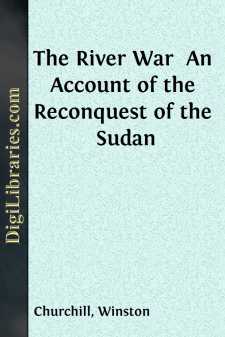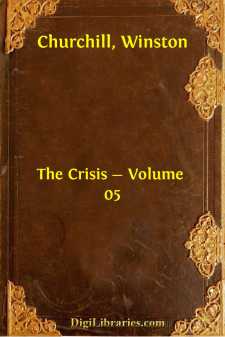Categories
- Antiques & Collectibles 13
- Architecture 36
- Art 48
- Bibles 22
- Biography & Autobiography 813
- Body, Mind & Spirit 138
- Business & Economics 28
- Children's Books 12
- Children's Fiction 9
- Computers 4
- Cooking 94
- Crafts & Hobbies 4
- Drama 346
- Education 46
- Family & Relationships 57
- Fiction 11821
- Games 19
- Gardening 17
- Health & Fitness 34
- History 1377
- House & Home 1
- Humor 147
- Juvenile Fiction 1873
- Juvenile Nonfiction 202
- Language Arts & Disciplines 88
- Law 16
- Literary Collections 686
- Literary Criticism 179
- Mathematics 13
- Medical 41
- Music 40
- Nature 179
- Non-Classifiable 1768
- Performing Arts 7
- Periodicals 1453
- Philosophy 64
- Photography 2
- Poetry 896
- Political Science 203
- Psychology 42
- Reference 154
- Religion 505
- Science 126
- Self-Help 81
- Social Science 81
- Sports & Recreation 34
- Study Aids 3
- Technology & Engineering 59
- Transportation 23
- Travel 463
- True Crime 29
The River War An Account of the Reconquest of the Sudan
Categories:
Description:
Excerpt
CHAPTER I: THE REBELLION OF THE MAHDI
The north-eastern quarter of the continent of Africa is drained and watered by the Nile. Among and about the headstreams and tributaries of this mighty river lie the wide and fertile provinces of the Egyptian Soudan. Situated in the very centre of the land, these remote regions are on every side divided from the seas by five hundred miles of mountain, swamp, or desert. The great river is their only means of growth, their only channel of progress. It is by the Nile alone that their commerce can reach the outer markets, or European civilisation can penetrate the inner darkness. The Soudan is joined to Egypt by the Nile, as a diver is connected with the surface by his air-pipe. Without it there is only suffocation. Aut Nilus, aut nihil!
The town of Khartoum, at the confluence of the Blue and White Niles, is the point on which the trade of the south must inevitably converge. It is the great spout through which the merchandise collected from a wide area streams northwards to the Mediterranean shore. It marks the extreme northern limit of the fertile Soudan. Between Khartoum and Assuan the river flows for twelve hundred miles through deserts of surpassing desolation. At last the wilderness recedes and the living world broadens out again into Egypt and the Delta. It is with events that have occurred in the intervening waste that these pages are concerned.
The real Soudan, known to the statesman and the explorer, lies far to the south—moist, undulating, and exuberant. But there is another Soudan, which some mistake for the true, whose solitudes oppress the Nile from the Egyptian frontier to Omdurman. This is the Soudan of the soldier. Destitute of wealth or future, it is rich in history. The names of its squalid villages are familiar to distant and enlightened peoples. The barrenness of its scenery has been drawn by skilful pen and pencil. Its ample deserts have tasted the blood of brave men. Its hot, black rocks have witnessed famous tragedies. It is the scene of the war.
This great tract, which may conveniently be called 'The Military Soudan,' stretches with apparent indefiniteness over the face of the continent. Level plains of smooth sand—a little rosier than buff, a little paler than salmon—are interrupted only by occasional peaks of rock—black, stark, and shapeless. Rainless storms dance tirelessly over the hot, crisp surface of the ground. The fine sand, driven by the wind, gathers into deep drifts, and silts among the dark rocks of the hills, exactly as snow hangs about an Alpine summit; only it is a fiery snow, such as might fall in hell. The earth burns with the quenchless thirst of ages, and in the steel-blue sky scarcely a cloud obstructs the unrelenting triumph of the sun.
Through the desert flows the river—a thread of blue silk drawn across an enormous brown drugget; and even this thread is brown for half the year. Where the water laps the sand and soaks into the banks there grows an avenue of vegetation which seems very beautiful and luxuriant by contrast with what lies beyond....












